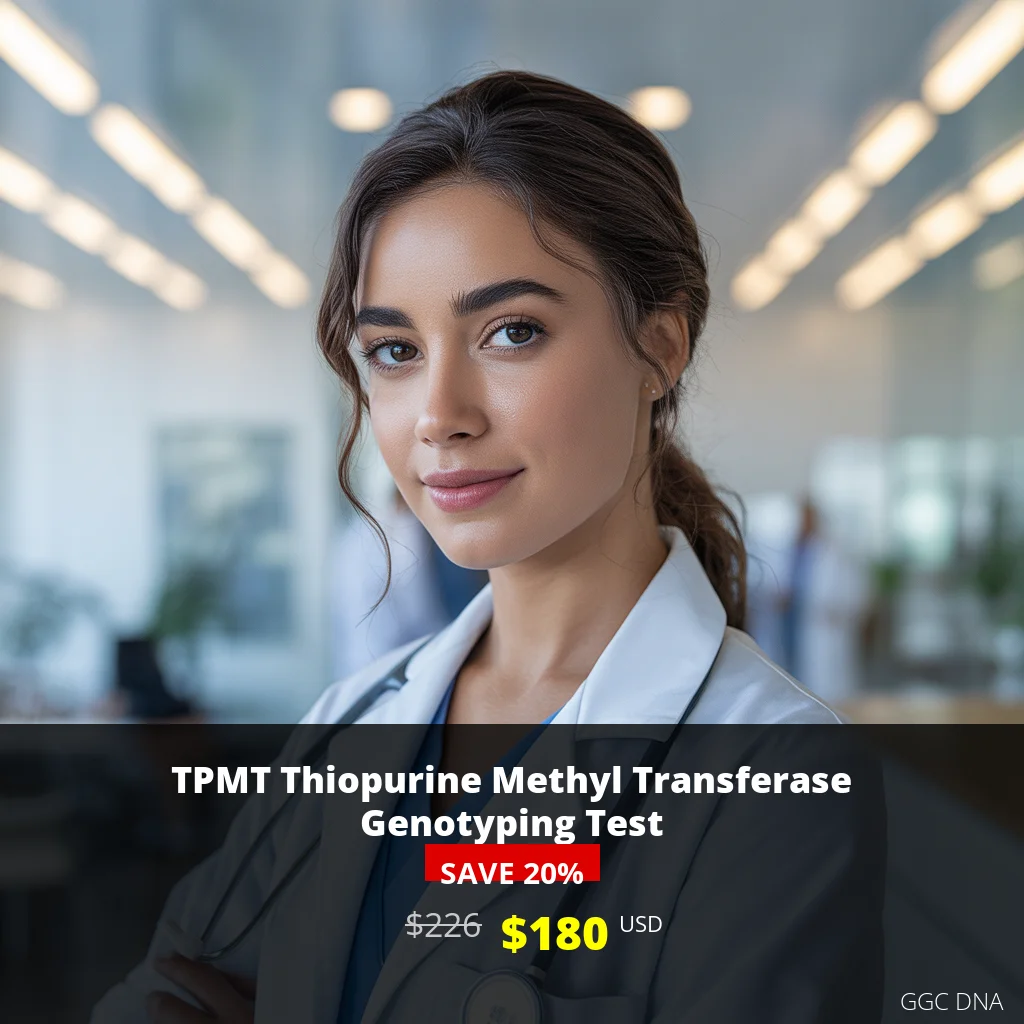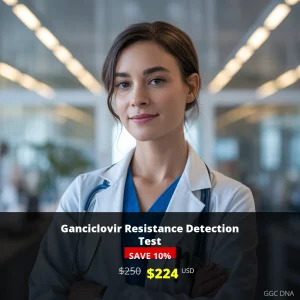TPMT Thiopurine Methyl Transferase Genotyping Test
Understanding TPMT Genotyping for Safe Medication Management
The TPMT Thiopurine Methyl Transferase Genotyping Test represents a breakthrough in personalized medicine, providing critical genetic information that guides the safe administration of thiopurine medications. These powerful drugs, including azathioprine, 6-mercaptopurine, and thioguanine, are essential treatments for various conditions but can cause severe, potentially fatal side effects in individuals with specific genetic variations.
What Does the TPMT Test Measure?
This advanced genetic test analyzes variations in the TPMT gene that codes for the thiopurine methyltransferase enzyme. This enzyme plays a vital role in metabolizing thiopurine drugs, and genetic differences can significantly impact how your body processes these medications:
- Identifies specific genetic polymorphisms in the TPMT gene
- Determines your metabolic phenotype: normal, intermediate, or poor metabolizer
- Predicts potential for drug accumulation and toxicity
- Guides appropriate dosing strategies based on genetic profile
Who Should Consider TPMT Genotyping?
This test is essential for patients who are candidates for thiopurine therapy or those experiencing adverse effects during treatment:
Clinical Indications Include:
- Cancer Patients: Individuals with leukemia, lymphoma, or other malignancies requiring 6-mercaptopurine or thioguanine treatment
- Autoimmune Disorders: Patients with Crohn’s disease, ulcerative colitis, rheumatoid arthritis, or lupus prescribed azathioprine
- Organ Transplant Recipients: Those receiving immunosuppressive therapy with thiopurine medications
- Patients with Family History: Individuals with relatives who experienced severe reactions to thiopurine drugs
- Pre-treatment Screening: Recommended before initiating thiopurine therapy to prevent adverse events
Benefits of TPMT Genotyping Testing
Understanding your TPMT genetic profile offers numerous advantages for treatment safety and effectiveness:
- Prevent Severe Toxicity: Identifies patients at risk for life-threatening bone marrow suppression
- Personalized Dosing: Enables tailored medication regimens based on genetic metabolism capacity
- Reduce Hospitalizations: Minimizes treatment-related complications and hospital stays
- Optimize Treatment Outcomes: Ensures therapeutic drug levels while avoiding toxicity
- Cost-Effective Care: Prevents expensive complications and treatment delays
- Peace of Mind: Provides confidence in medication safety and effectiveness
Understanding Your TPMT Test Results
Your test results will categorize your TPMT metabolic status into one of three main groups:
Normal Metabolizer
Approximately 89% of the population falls into this category. These individuals have normal TPMT enzyme activity and can typically receive standard thiopurine doses with routine monitoring.
Intermediate Metabolizer
About 11% of people are intermediate metabolizers with reduced enzyme activity. These patients require lower starting doses and careful monitoring to prevent toxicity while maintaining therapeutic effectiveness.
Poor Metabolizer
Rare individuals (0.3% of population) have very low or absent TPMT activity. These patients are at extremely high risk for severe, potentially fatal bone marrow toxicity and typically require significantly reduced doses or alternative medications.
Test Information and Pricing
| Test Parameter | Details |
|---|---|
| Test Name | TPMT Thiopurine Methyl Transferase Genotyping Test |
| Discount Price | $180 USD |
| Regular Price | $226 USD |
| Turnaround Time | Sample Monday/Thursday by 11 AM; Report Wednesday/Saturday |
| Sample Type | 4 mL (2 mL minimum) whole blood in 1 Lavender Top (EDTA) tube |
| Shipping Instructions | Ship refrigerated. DO NOT FREEZE |
| Required Documentation | Duly filled Genomics Clinical Information Requisition Form (Form 20) |
| Testing Method | Real Time PCR |
| Specialty | Oncologist, Molecular Diagnostics |
| Disease Category | Therapeutic Drug Monitoring |
Nationwide Testing Availability
We have branches across the United States, making this essential genetic testing accessible to patients nationwide. Our testing facilities are conveniently located in major metropolitan areas including:
- New York City and surrounding areas
- Los Angeles and Southern California
- Chicago and the Midwest region
- Houston and Texas locations
- Phoenix and Arizona facilities
- And many other cities across the USA
Take Control of Your Medication Safety
Don’t leave your treatment safety to chance. The TPMT Genotyping Test provides essential genetic information that can prevent serious medication complications and optimize your therapeutic outcomes. Our advanced molecular diagnostics laboratory uses state-of-the-art Real Time PCR technology to deliver accurate, reliable results you can trust.
Ready to ensure your medication safety? Book your TPMT Genotyping Test today or call our genetic specialists at +1(267) 388-9828 to discuss your testing needs. Take the first step toward personalized, safe medication therapy.







